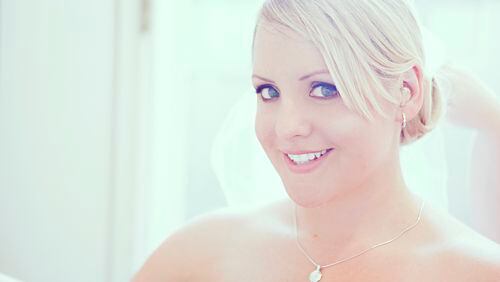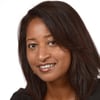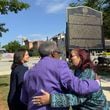Almost a decade ago, when Kirsten Palladino was planning her wedding, she found there were limited resources at her local bookstore in Atlanta. There were plenty of wedding guides on the shelves, she said, but they all made reference to a bride and groom.
Palladino wasn't sure how those descriptions applied to her and her soon-to-be wife, Maria. Though she found a few more relevant resources online, they were often outdated and didn't reflect the diverse nature of the LGBTQ+ community, she said.
It all left her feeling confused, excluded and completely on her own.
So the moment they returned from their Caribbean honeymoon, the duo got to work launching Equally Wed, an online wedding magazine for modern LGBTQ+ couples . Five years later, in 2015, the Supreme Court struck down same-sex marriage bans and Palladino knew the time had come to resurrect an idea that had been brewing for years: a book on wedding planning that would help the LGBTQ+ community feel as if their relationships are valid and valued.
"When I look at the wedding books now, I hardly ever see the books that are for same-sex couples. I wanted to produce something with longer staying power...and have the opportunity to have some validation on the wedding shelf," said Palladino.
Writing "Equally Wed: The Ultimate Guide to Planning Your LGBTQ+ Wedding," (Seal Press, $18) allowed Palladino to collect and catalogue all of her knowledge from the last seven years of involvement in weddings and social justice.
While there are many similar issues that crop up in any wedding regardless of the couple's sexual orientation or identification, the LGBTQ+ community has some unique concerns, said Palladino.
Budgets are a huge consideration for any couple, Palladino said, but finances may be of even more concern to members of marginalized communities. While some couples can look to family for financial and emotional support, that is commonly not the case with members of the LGBTQ+ community.
"Members of the LGBTQ+ are more often rejected by their own families so they may not have the support," said Palladino. "In terms of the LGBTQ+ lens one of the main concerns is dealing with families and dealing with vendors who, if you are not sure the vendor is equality-minded, you don’t know what the reaction is going to be," she said.
Palladino has talked to many couples who decided to have a DIY wedding rather than risk dealing with wary vendors or vendors that are just uninformed. One example, she said, is a venue that offers up a bridal suite for the bride, but what if you are a couple who wishes to get dressed in the same room?
"We have to do the backbends and figure out how to fit a square into a circle rather than it just being a room for each marrier (this is a real word, she notes) regardless of their gender identity or sexual orientation," Palladino said.
That kind of mental gymnastics can add a layer of stress to the whole experience, she said.
In an effort to assist vendors as well as less informed members of the LGBTQ+ community, Palladino includes a wedding lexicon of terms that are LGBTQ+ friendly.
Don't want to call yourself a groom? Try "Broom" -- the term coined by Palladino's wife when they planned their own wedding -- to represent someone who presents themselves as masculine but prefers the combination of 'bride' and 'groom' to 'groom.'
Instead of using terms like fiancée or fiance, LGBTQ+ couples might call themselves "nearlyweds" -- a gender-neutral term for a person who is engaged to be married.
Palladino is quick to note that the confusion extends beyond the traditional wedding industry. Even members of the LGBTQ+ community may be confused, she said.
"I have encountered so many gay people who don’t understand what it means to be queer or gender non-conforming. These are relatively new terms that people are defining themselves with. We are getting to a point where we are not just going to let gay, white cisgender (one who identifies as the gender of the body they were born in) people speak for us. I think it is important to educate our own community about it so they can be cognizant and inclusive," Palladino said.
The book, she said, offers validation to those who have felt sidelined by the traditional wedding industry, and unlike other books out there, it doesn't leave it up to the individual to figure out where they fit in.
"You fit in right from the start. This book is not just about weddings. I consider myself to be an activist and I look at this book as the intersection of social justice and weddings," she said.







